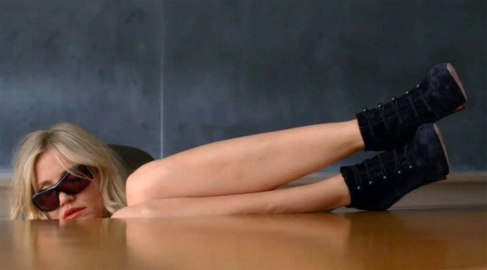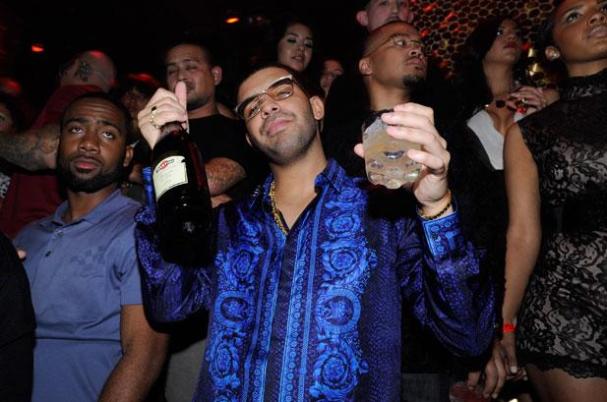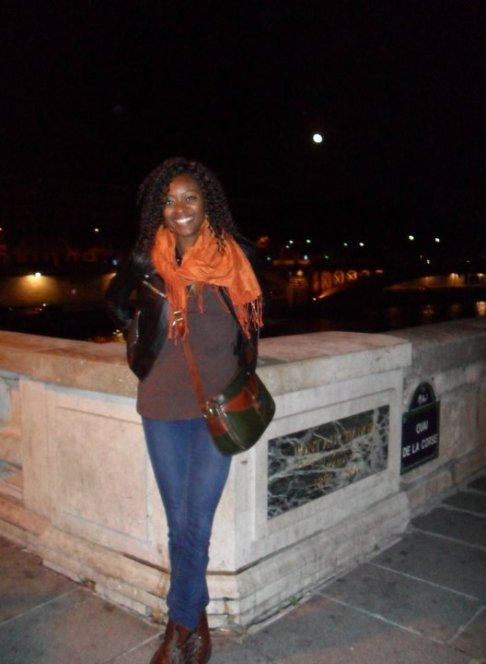see carla write.
luscious mix of words and tricks
Just Be A Man About It
I was on Facebook today and saw a status that pissed me off. Perhaps you can relate. No, of course you can relate. What is Facebook really for, if not for showing you which of your acquaintances and family members you probably should not be in a room with for more than ten minutes?
The status in question was, presumably, borne of a domestic squabble, because it said something along the lines of, “why can’t MEN with FEMALE emotions learn to grow a pair?” Aside from the well-established fact that .0001% of your Facebook friends are interested in reading about your personal drama, this status rubbed me in all the wrong ways. And, sure, I get it, people say really idiotic things when they’re upset. It’s natural – we get frustrated, we vent. But if you’re going to vent on a platform that, by definition, will be seen by hundreds of people, instantly, with zero context and with zero warning, then as your ‘friend’, I am entitled to form an opinion about a) the subject of your venting and b) the way in which you vented. Thanks, Mark!
I am completely uninterested in this particular person’s personal drama; however, I do take issue with the way she decided to articulate its aftermath. As a woman, I have been subjected to countless instances of subtle discrimination and mockery because of my gender. It comes from everywhere: television, movies, advertising, family, friends, even myself. It’s ingrained. I am quick to make the disclaimer that I ‘throw like a girl’ because any attempt to fling anything at anybody in a setting that demands some level of precision and athleticism typically goes hilarious awry. I repeatedly reminded myself to ‘man up’ while getting my first tattoo, lest I give any outward sign that I was uncomfortable. I’ve even caught myself calling frightened characters in TV shows ‘pussies’. I am a person WITH a pussy; why would I even think such a thing?! It’s inconceivable, and yet, totally normal. Calling out my own internalized misogyny is not something I thought about doing until I was in my 20s, and now that I’ve started doing it, I’ve come to realize just how much self-hate I’ve been living with. It’s pretty scary.
What does that have to do with this status? Clearly, this person was talking about men. Well, it has everything to do with it. I am proud to call myself a feminist, albeit also quick to clarify exactly what I mean when I say that, because apparently, it’s still necessary: I believe all genders should be treated equally. Women, men, trans, non-binary, everybody. And building imaginary fences that separate MALE and FEMALE emotions is not only completely asinine; it’s insulting to EVERYBODY.
Basically, this person is saying that men should not have female emotions, because it negates the existence of their testicles. (???) This was clearly expressed in a negative light. Ergo, the lack of testicles = bad.
But then, this person is a female, with presumably female emotions, and testicle-less, so are we to conclude that this person = bad, as well???
Probably not, as she is one who wrote the status. Okay. So the problem must be the man…but she decided to emphasize the fact that he is afflicted with ‘female emotions’. If he did not have these emotions, it follows that this status would not have been made. Makes sense, right?
So. Let’s examine the real enemy: FEMALE EMOTIONS.
Aye, here’s the rub: Emotions do not have a gender. Emotions are chemicals telling our brain to do stuff based on stimuli and our experiences and our unique perspectives of the world. (Science??) Emotions are not blue or pink. Emotions do not have identifying chromosomes. Emotions are common to humans. Every human has emotions; the same emotions, more or less.
Don’t be an asshole, Carla, clearly she’s talking about emotions females feel more often than men. Thinky-hurty-talky emotions, right? The ones that make women cry and men scowl. Women supplicate and men cross their arms. Women placate and men smirk. Women are the sensitive, nurturing, articulate ones, who feel more deeply and think more carefully and hurt more…prettily. While men are the stoic, calm, centers of the storm, responding calmly and rationally and so, so obtusely. Just, totally missing the point. Right?
No, no, wait. That isn’t right. Because this guy had female emotions. So that means he was being sensitive. And needy. Probably whiny.
But it could also mean he was uncommunicative. Closed-off. Unwilling to compromise. Because at the end of the day, I have no idea what the situation was. So the only thing I can reasonably conclude is that this man acted in a way that this woman didn’t like. A way that warranted him being accused of being similar to a woman. So…who is really being insulted here?
If you weren’t sure what I was talking about when I mentioned ‘internalized misogyny’, I sure hope you get it now.
On writing, and to do lists, and Neil Gaiman
This post will not be as heavy as my last.
I’ll be honest: I did not mean to write. I didn’t even want to. Well, that’s a half-truth. I always want to be writing, want in that deep, almost primal sense, because writing is what comes most naturally to me out of all of my habits and proclivities: not talking, reading, observing, internalizing. Writing is my tool for synthesis, understanding, and introspection. It affords me both the freedom of creation and the immediacy of my own intellectual capabilities. So yes, writing is something I always want to do, but the older I become, the more worries and responsibilities I bear, the harder it becomes to divorce the joy of writing from the burden of work. Writing is hard, and tedious, much more often than I care to admit. If you love something, you should love all parts of it, right?
I mean, maybe not. That’s a pretty naive view of love. Maybe it’s the persistence despite the difficulties that make it truly worth it.
Eric came home and asked, “What happened to your journal entries? It seemed like you were on a roll.” I try to carve the time out of every day to write at least (meager, meager least) a page in my journal. These entries contain little substance; they’re mainly trite, witty summations of my day, lists, aspirations. I am no Sylvia Plath, whose diary entries still inspire such wonder and envy in me. To have spent the time crafting such fresh, crisp descriptions of her breakfast, of looking out at the sea of young faces she taught every day, of her admiration for her husband and their shared passion for poetry – how did she find the time, the focus? Didn’t her hand cramp up? Where did all of her spare mental mileage come from, after a day of teaching and writing and just…living?
The clicking of my keyboard: “I wasn’t trying to shame you into writing,” he just said. Well, he did, but I’m not upset. If I identify as a writer, shouldn’t I write? I made a to do list for today, consciously choosing to partition my numerous tasks for the weekend over today and tomorrow, instead of shoddily attempting them all around 7 pm tomorrow, when the looming threat of Monday has become harrowing and inescapable. It worked; I checked everything for Saturday off of my list. And yet, the heady glow of satisfaction is now only being fully realized as I type. Typical. Sometimes, you just need that shame.
There’s a Neil Gaiman quote that floats onto my Tumblr dashboard every once in a while, but naturally, now that I want to find it, I can’t. But he says something like, ‘Don’t let writer’s block stop you from writing. A real writer is one who writes when they feel they have nothing to write about.’ I once sat down to write a poem, and after about twenty frustrating minutes of mental tumbleweeds, I started writing about having nothing to write about. At the end of two pages, I stopped, scrolled to the top, read through what I had just written, and laughed. That poem ended up winning a bronze medal in a competition I entered that year. Tangent.
My point is, I have no excuse. While I often have small bursts of inspiration that end up making it as far as my iPhone Notes and no further, the majority of the time, when I sit down to write, it’s simply because I want to. I would like to write a book one day. Soon. Maybe it will be a children’s book, or a young adult book, or one for adults. Maybe it’ll be a novel, maybe it will be a collection of essays or short stories. I want my main character(s) to be people of color, people with real anxieties and family members they don’t speak to as often as they should and unsightly skin blemishes that won’t go away. I want them to be confused and loud or maybe mostly quiet and neurotic. Their dreams will be like water and brambles and smoke and touch the distorted features of faces they love, streets and corridors they’ve walked thousands of times but can’t recognize in the fading light of a setting lavender sun, muddled visions yearned for and slowly lost. They’ll look at their best friend and wonder what would happen if they suddenly kissed them deeply, or stand on line at Target and fantasize about taking off all of their clothes and running screaming through the aisles containing greeting cards and fruit-shaped stickers but they won’t, they’ll smile to themselves and pay for their lotion and tampons because, social codes. They might become more flexible, sexually, and lazily decide to pass on the cliched freak-out because it makes much more sense that human sexuality be a spectrum, and not a light switch. Maybe they’ll have fins and gills, or maybe there will be a mass migration to Venus to establish a matriarchal monarchy. Maybe they’ll be depressed. Maybe they’ll be ghosts, but corporeal, and venomous, and scared.
I know I need to get started. Today, every day, is a reminder of that.
How about this? Tomorrow, I’ll put it on my to do list.
cultural identity crisis?
A couple of months ago I wrote a piece in which I unabashedly laid bare some of my most pervasive and damaging insecurities, most of which centered around my physical appearance (mainly, my hair). Every so often I go back and read what I wrote, and I see all the ‘likes’ and comments from people who have read it, some from my closest family and friends, some from people I would probably never even think about if it weren’t for social media, and I cringe. In reality, I am one of the most quiet and withdrawn people I know when I am around people I am not completely comfortable around, and that is not a large group of people. But, as is the case with most writers, I suppose, who stray to introversion, it is such an incredible relief to use the medium of writing to express what I cannot out loud.
I will probably look back on this at some point and cringe, maybe five minutes after posting it, but what good is writing if it doesn’t expose something? Maybe someone will catch a glimpse of themselves in what I said. That, more than an exhibitionist urge, is why I write.
I was raised in a very Caribbean home. Or West Indian – is that more accurate? My father was born in Guyana; my mother in Jamaica. They lived in the United States for many years before I came along, but their enduring passion and sense of belonging to their original homes was strong enough to never make me hesitate in considering myself a member of the ‘first-generation’ club. I had other friends whose families were West Indian; we commiserated over our shared ‘struggles’ that we were actually secretly proud of: the indescribable panic that filtered through the house when someone discovered we were out of rice; the abrupt switch to patois that was the unerring harbinger of a truly painful punishment; curry, curry, and more curry when seriously, can we never just have fried chicken like regular black people?
You read that right. Is that offensive? Probably. Sorry. But this is genuinely how I viewed myself and other Caribbean-American families. There was a clear difference between my family’s Sunday dinner and my friend Rashida’s. When I went to a family reunion at Kerryn’s house, they did not drink mauby or sorrel, and her grandmother certainly was not wining to “Murder She Wrote”. From an early age, I was acutely aware of the cultural variations that existed between me and some of my closest friends, despite our nearly identical skin tones; our similar hairstyles and way of dress. Most of the time, they made me laugh. But the older I got, the more it began to…rankle.
I think it was college where I really began to grasp how much of what I saw as ‘black culture’ I had missed out on. When I saw large groups of black girls on campus, my first instinct was to hide, or make myself less visible, as if I was somehow afraid they’d call me out on my anti-social and uncool behavior, the opposite of how they were presenting themselves. They seemed so vibrant and intimidating and I felt completely separate from them; somehow familiar yet totally incomprehensible. I tried to integrate: I auditioned for a hip hop dance group, experienced some of the worst stage fright of my life, and got cut – one of the most humiliating experiences of my college career (a black girl who can’t dance?) I also joined the Liberation Gospel Choir for a couple of months (weeks?) out of a fit of nostalgia and loneliness. I was always in choirs throughout elementary, middle, and high school; even in my church, where I had become accustomed to feeling out of place, I felt accepted in the Children’s/VOP/Teen Choir. In LGC, I quickly assumed my typical M.O.: quietly watching other’s antics from the sidelines, laughing at the jokes and speaking when spoken to. I eventually stopped going when I felt my act was too difficult to maintain. It just wasn’t me.
What the hell is blackness? Buried beneath my many other, more demanding insecurities, this one lingered for years, festering. Every time I went abroad, it became easier to ignore. Do you know how often you worry about seeming ‘black enough’ when you’re hanging out in a bar in southwest England with people from all over the world, who speak seventeen other languages and who all look and dress and think differently? NEVER. I was just another foreigner in a sea of foreigners, except I also had a (pretty unfair) leg up, because they all also spoke English. I had no one to compare myself to because no one else looked like me. I could finally breathe without worrying about if I was breathing the right way.
(People told me how transformative my study abroad experience(s) would be, but every time I write, I continue to understand just how right they were. Perhaps even more in retrospect.)
I’ve been back for years and the question remains: what is blackness? What does it mean for me? For most of my life, American blackness has been like a club I can’t quite afford membership to. There’s an exhaustive list of things I’m missing: the lyrics to yet another classic oldie that my peers’ parents were blasting while mine were crooning along with “Three Little Birds”, having seen some iconic Spike Lee movie or old black sitcom, an appreciation for an actor whose name I can’t really remember. I didn’t go to an HBCU, much less apply to one. I have no memory of watching the “Thriller” video for the first time (this is a thing, right?). I’ve learned to stop making exclamations when I hear the original songs that modern hip hop artists have sampled from, for fear of getting the “are you kidding me????” look that is rarely served alongside genuine contempt, but feels no less crappy. Now that I’m 25 and am consistently surrounded by probably more black people than I have ever been in my life, I feel like I’m desperate race to catch up, before…what? Before people truly realize how ‘not black’ I am? Before I have kids, and I fail to expose them to essential black culture out of woeful ignorance? Whatever it is, there is a definite sense of urgency, quickly followed by a sense of hopelessness. How sad is that?
Please don’t take this as some sort of indictment against my parents, who happily and freely shared their cultures with me, to the point where I identify with their legacy as truly mine. If I am frank, I still see black American culture as one that I have adopted – from a very early age, yes, but it still isn’t…biological. There are days when I feel my membership is stronger than others; when no one could look at me and tell that I didn’t belong. And there others that…well. Those are bad days.
This might all be in my head. Black culture is what it is because of the vast blend of African and Caribbean cultures that contribute to it; the true ‘melting pot’ that the white founders of this country loved to boast about. One black person is no more or less ‘black’ because they don’t subscribe to the exact brand of blackness that another has known from birth – using the same slang, singing the same songs, dancing the same way. Right?
Then why do I still sometimes feel like such a fraud?
My Job Won’t Let Me Hate My Job
I never wanted to teach secondary school.
While I dreamed of standing in front of classroom, molding young minds, shaping our future, grading papers and assigning homework, I never, not once, seriously entertained the thought of teaching middle or high school. Kindergarten, probably. Third grade, maybe – a little old for my comfort level. I imagined myself as motherly figure to very small children, ones who were still learning how to properly hold a pencil, who were stumped by addition problems with multiple digits, who were still firm believers in the Tooth Fairy and the monster under the bed. Babies, I told anyone who would listen. I want to teach babies.
I do not teach babies.
I haven’t been in the best mood this week. Sometimes my bitterness descends like an angry, relentless cloud, and I’m forced to get up out of bed, onto the hot, crowded train, and into that damn building to paste on a smile and teach preteens and teenagers. It does not come easily for me.
Sometimes I need to remind myself, ‘Be nice to the children. It’s not their fault you’re in a bad mood. Well, a lot of the time, it probably is. Be nice to them anyway.”
But then, in the midst of my lackluster affirmations and constant clock-checking (is it 2:49 yet? it is 3:41 yet? is it JUNE yet?) a kid will be awesome, or hilarious, or incredibly sweet, and it throws my entire cynical world for a loop.
Yesterday afternoon, five high schoolers attended the first meeting of the literary magazine club a coworker and I decided to create this year. I admittedly dragged myself in the meeting tired and battling a headache, which has become my normal state of being for the end of the day, but I forcibly made myself perk up for the sake of the kids. I’m glad I did. What followed was one of the most enjoyable times I’ve ever spent with students. The girls were creative, engaged, outspoken, and HILARIOUS. In all of my internal mumbling and grumbling, I had temporarily forgotten how great teenagers can be. They can make me laugh, make me think, make me forget about my headache.
No, they were not the age group I chose. But they’re the age group I’m with, and honestly, sometimes, I just cannot hate it the way I want to.
I don’t know if you’ve heard DJ Khaled’s song, “No New Friends” (okay, Drake is the one who whines the chorus, but give credit where credit is due), but I have, and I take issue with it. (And let us assume, for a few minutes, that I am not a twenty-something year old rapper with millions of dollars in disposable income.)
Dearest Drake,
What, exactly, is the problem with acquiring new friends? Does their addition to your date book and contacts list threaten your old friends? Are they too demanding on your limited resources of affection and time? Do they chew with their mouths open or bad-mouth your profession? Are their belief systems uncomfortably challenging to your own? What is it, Drake? What?
As a professional living in a big city in her mid-twenties, the prospect of new friends is not only permissible, it is incredibly appealing. I moved out of my small hometown about a year and a half ago, and while I have met some people I would now consider friends, there are many occasions where I find myself subtly seeking even more individuals with which to share my platonic affections. If you’re reading this and shaking your head in astonished disbelief, Drake, then just hold on. Allow me to explain.
I was pretty popular in high school, if you can even qualify as ‘popular’ in a graduating class of 63 people. I considered myself friends, or acquaintances, at the very least, with the majority of my class. I made a point of being strange and silly and making people laugh – at me, or with me; the majority of the time it didn’t matter. I avoided lifetime membership to any one clique, preferring to bounce from lunch table to lunch table, identity to identity. Can’t catch me, White Preppy Girls, because now I’m rapping obnoxiously loudly with the Unfriendly Black Hotties! But don’t you worry, Sarcastic Nerds, I’ve got my copy of Half Blood Prince and my highlighter; I’ll see you in our sixth period book club (read: study hall). I had the system down. That’s what’ll happen when you attend the same school with the same people for twelve years. You become a bit comfortable.
College, therefore, paralyzed me like a shot in the back, leaving me unable to function with my previous ease. It was the classic ‘small fish in a big pond’ situation. Here’s a tip: if you’ve been accustomed to very small, nurturing environment your entire life, you probably shouldn’t hurtle headfirst into a situation where you’re a nobody in a sea of other loud, vulgar, oftentimes smelly nobodies. In other words, do not –DO NOT – attend a state school. There were so many people around me, I didn’t know how to function normally. So I threw myself into social situations with the grace of drunk hippopotamus (the main difference being I was not, in fact, a hippopotamus). Once I realized that the hangovers and residual humiliation were probably not worth a few hours of ‘fun’, I began trying to make friends in other, less sloppy ways: I auditioned for a dance group, joined a gospel choir, and began attending Classics Club meetings.
All of my attempts failed, for one reason or another, and I gave up and retreated into a shell of misery, loneliness, and boredom until my study abroad year. Life in England was brand new and exciting, and I vowed to start afresh: alluring French man staying in my hostel invites me to a party of another stranger? Why not? People at said party find me interesting and converse with me in broken English? Beautiful! Get their numbers! Try to learn to speak their languages! See, Drake, I was able to make new friends, and I could even get international with it. Rutgers may have been the bottom, but I was definitely, finally here.
…Until May, when classes ended and my Visa expired and I had to go home.
I graduated with a profound attitude of ‘good riddance’ and, beneath that, a sadder, angrier attitude of ‘wow, how much happier would I be if I had spent the past four years at a school that I liked?’ Alas, time, as is its wont, goes on, and bitterness is something that one must cope with, day to day. I knew I would never get those years back, never regain the seemingly limitless amount of time to find people you connect with and love and want to keep in your life as you mature and continue to reach memorable milestones. Don’t get me wrong: I did meet such people in college. My regret was that I could count those people on one hand.
Am I greedy, Drake, for craving a larger and more varied community of friends? Maybe I am. Maybe I should focus on maintaining the friendships I already have, you say. Pop more champagne, throw around our imaginary hundred dollar bills, you know, #justgirlythings. This is good advice, but allow me to posit that while appreciating your friend circle is important, healthy, and more than worthy of praise, it is equally important to be inclusive of potential new friends. Don’t deny them from the outset; how do you know they won’t be an amazing contribution to your life, and vice versa? This playground snobbery is beneath you, Drake. You only live once; that’s the motto. Open up and let them in (unless, of course, they’re only after you for your money and fame, in which case, have them kicked out of the club for having the audacity to breathe your air. Swag.).
This post appeared on The Penny Ledger on October 2, 2013.
The Benefits of A Minor in French
There comes a time, for most high school students, to pick a foreign language they’d like to learn. When my time came, I already knew: French.
At this point in my life, I had never been to France, thought about going to France, or hitherto expressed any interest whatsoever in anything French. So I can understand why my sudden desire to learn the language might have confused my friends and family.
What was unexpected, however, was the immediate backlash. “What do you wanna learn French for?” Because, well, I don’t know. Why not? “Who speaks French?” French people and people who learn French, I suppose. “Why don’t you learn a language that will benefit you more?” Well I already know English, which benefits me quite a bit, so I’m not quite sure what your quarrel is.
Spanish, I soon learned, was their preferred alternative: the second most widely spoken language in the United States, so it would probably be smarter to devote my time to learning how to speak it. You know, just in case. This argument made sense to me, and at that age, I was very easily swayed by people who seemed to know more than I did. So I bid au revoir to my French dreams and registered for Spanish, which turned out to be boring and deeply uninteresting to me.
So boring, in fact, that I dropped it too quickly and ended up with insufficient foreign language credits. I was accepted to Rutgers, but only to their school of environmental sciences, due to this deficiency. (I suppose environmental scientists have enough on their plate without about learning how to say ‘global warming’ in another language?) In order to switch to the school of arts and sciences, I would need to remedy this grievous oversight by taking a foreign language course.
All of the resentment and bitterness I had repressed from high school came immediately swirling to the surface, and with an aggressive sort of excitement I registered for my very first French class. Take THAT, pragmatic naysayers! I’m learning the language of looove, and Beauty and the Beast, and Phantom of the Opera.
I like to think I have a natural flair for languages, because I took to French very quickly and with minimal difficulty. It helped that I became mildly obsessed with it, engaging in ridiculous and Hermione Granger-esque behaviors such as reading my textbook and workbook for fun, attempting confusing conjugations we hadn’t yet learned in class, and watching Amélie until I no longer needed subtitles. I was always one of the most vocal students in my classes; never failed to turn in assignments on time, if not early; and I joined the French Conversation Club, a hilariously awkward weekly gathering of students self-consciously conversing in various mutations of French.
By senior year, I was pretty secure in my working knowledge of the conversational and grammatical mechanics of this previously exotic language, and completely fed up with the academic aspect. I just wanted togo. After graduation I was accepted as an English teaching assistant in three elementary schools, where I would be responsible for teaching English to rosy-cheeked children several days a week and get paid for it. I couldn’t believe my luck. The fall of 2010 found me packing my bags and flying to Paris, my home for the next seven months.
Then reality set in. To be fair, the reality wasn’t horrible, but it wasn’t great, either: my first couple weeks were fraught with much confusion and a disturbing lack of communication between my employer and the schools I would be working in. I received many blank looks from harried administrators after stumbling through an introduction, after which they would basically ask, “Wait, so – why are you here? Who sent you?”
The teachers were just as confused, but eventually willing to concede control of their classes to this perfect stranger; sometimes, too eager – one teacher quickly began to view my arrival as a 45 minute break. I soon realized I had been misled; minimal knowledge of French would have left me floundering here, despite my employer’s previous assurances to the contrary. ‘You only need to speak English’ sounds awesome in theory, but when you need to explain the rules of Simon Says to 25 five year olds who can barely say “hello”, you need to make some concessions. You need to speak French, and speak it well. Thankfully, my overzealous efforts assimilation the past four years paid off, and I like to think I was a half-decent English teacher.
A few years have passed since my return to the States, where yes, there are indeed French people and people who speak French, but few opportunities to exercise my ability to do as such. To be quite honest, I’m not sure my conversational skills are where they were in my golden years. Sometimes I forget really basic words, like ‘yesterday’ or ‘chicken’, and plunge into a downward spiral of shame until I remember four days later.
I could attend conversation meetups, in a poor, sad echo of my college group, but I must admit that I am not optimistic about the other attendees: elderly expats? Frustrated spouses of French people? Hardly vibrant and hip French 20-somethings, who could instead talk to their own friends – easily, with slang, and without needing to slow down to be understood.
I’ll just continue to languish here, with only my memories of France to sustain me through the occasional bouts of nostalgia, and every so often, google tickets to Paris to remind myself that I definitely cannot afford them. Somewhat bilingual, that ain’t half bad. It looks great on resumes and occasionally comes in handy, when the non-French speaking individual would just see or hear a nonsensical grouping of letters and think ‘French word’. Whereas I, having labored for countless hours on the complex structure and technical minutiae of this language, can immediately translate hier and poulet, and who can ask for more, really?
This post appeared on The Penny Ledger on September 10, 2013.
Professional Development
Today was one of those rare days that I was let out of the building where I teach to learn about teaching. PD, or Professional Development, is always a blessing, particularly as we sail into the warmer, happier days of spring and summer. My PD today lasted from 9 to 11:45 am, meaning I woke up a full two hours later than I normally would, and I had the freedom to wander around afterward, making the sort of frivolous springtime purchases that this sort of unexpected liberty provokes.
Now, sitting in the buzzing Union Square B&N, waiting for my tea to cool, I can’t keep my eyes from darting around every couple seconds, taking in the page-flipping, finger-clacking, lip smacking mass of humanity surrounding me. What are they all doing here? What enables them to just sit here, blithely undisturbed by the kinds of responsibilities and anxieties that plague me nearly sun up to sun down? The obvious response, of course, is they could very well be thinking the same about you, and who are you to say they aren’t as stressed out, or more, or of course mind your own business and put the lid back on your tea before it spills all over your laptop.
Growing up, I often heard my father assert that an individual will know she’s found her calling when she would happily do her job for free. Now that I am more or less Grown Up and have my own Real Job, his words haunt me whenever I have a moment of quiet reflection – which is usually on the train, when the battles and political intrigue of A Feast for Crows grow too wearisome. And I come to the sad realization, every time, that no, I absolutely would not do my job for free.
As with most families, I unwittingly followed my father into the arena of education. I do not use the word ‘arena’ with creative whimsy. Most days feel like I am fighting a battle – whether it’s a battle of wills between me and a student, a battle with unforgiving curriculum and learning standards, a battle with the deplorable state exams we subject the students to, or simply the battle that continually rages within me, struggling to keep up with the myriad duties I have while others are flung at me out of left field.
‘Learning on your feet’ does not do justice to the experience of a first year teacher, particularly one who works with students with special needs. ‘The blind leading the blind’ feels more apt. Basically, this job is hard. It’s constant, and it’s relentless. I have to get up and walk into this arena every single day and essentially put on a superhero cloak when I would rather whimper in a corner. So, no, I don’t think I would do this for free. In fact, I would posit that I am not compensated enough. But as I am merely a first year teacher, the scaly, damp underbelly of the Department of Education leviathan, there is no point in entertaining that thought.
However, of late I’ve found more reasons to pause my cynical musings. There have been moments, increasingly often as this academic year crawls to an end, when I feel compelled to stop and examine a situation with a student before reacting to it. During the pregnant pause between scolding and response; discipline and acceptance (or, more likely, the lack thereof) I gain a sense of clarity. Their insolent smirks, rolling eyes, sucking teeth – these are not actually declarations of war nor aspersions cast upon my worth as a human being. They are very immature reactions to being told off, when they know they’re wrong, when they know their friends are watching. They are, if we’re going to get really real, the exact same things I did 10, 11 years ago. But when I became a woman, I put away those childish things. My students? They’re still stuck.
Seriously – do you remember being a preteen/teenager? Do you?
I wanted to be a writer. I dreamt of publishing the kinds of books I devoured when life was chaos and school was chaos and my parents were chaos and the only things that shut up and made sense were the worlds I could escape to. I found solace in these words, words written by adults who knew what it was like to be a teenager and somehow made it through, mostly intact. I wanted to provide the same comfort, the same sense of loving camaraderie, be the literary shoulder that other struggling kids like me could cry on. I wanted to never forget what it was like; in my eyes, that was the heinous crime so many adults committed, daily, with oblivion and disdain. Forgetting. And life has oh so subtly assured me that I won’t: I’m surrounded by adolescents. Every. Day.
I still have faith that I will fulfill my original dream one day. I’m in my 20s, so the proverbial night is young, however dark and full of terrors it may be. But it makes sense that this is where I am right now. I don’t love my job and I wouldn’t do it for free – but maybe that’s not the point. An all-consuming passionate love for my job, at my age, is a myth. (And if you’re 24 and adore your job, spare me and keep it to yourself.) I’m too green to have found my dream career, and I’m learning to be okay with that. I’m still growing. Like my students, I have days where I just want to suck my teeth and roll my eyes at the world. But when my tantrum has passed, I remember to grow up. I remember exactly why I’m here: my students. Their education. Their well-being. Not, necessarily, my paycheck.
This epiphany, each time it graces me with its presence, makes donning that superhero cloak much easier.
Professional. Developing professional. You know what? It’ll work for now.
This post appeared on The Penny Ledger on September 3, 2013.
A burst of clarity on the train (journal extraction).
I need to remember these moments, when the blood is pounding swift through my veins: the heady rush of confidence and unshakable surety; the jogging pursuit and slight shortness of breath; when chaos rules, but not unbearably.
Right for right now. All of it. Right now. Of that I’m certain.
Tomorrow is, well, another day.






